Knowing the importance of exercise and maintaining a healthy lifestyle is always positive progress to becoming your best self, but getting your family and friends on board with this commitment can be a challenging task. If you want to encourage your loved ones to incorporate exercise into their daily routines, here are some tips and strategies to help you motivate them.
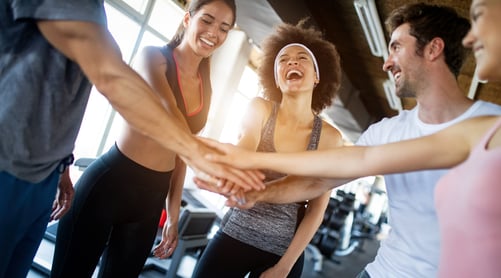
- Lead by example: Setting a positive example is the most powerful way to inspire others. Demonstrate your commitment to a healthy lifestyle by consistently engaging in exercise and making nutritious choices. They may be more inclined to follow suit after seeing your dedication to working on yourself and your lifestyle.
- Make it fun: Other people might see exercise as a chore; however, it can be an enjoyable activity. Encourage your family and friends to participate in activities they genuinely enjoy, whether it's dancing, hiking, playing a sport, or even trying out new fitness classes together. Fun makes fitness sustainable!
- Set realistic goals: Help your loved ones establish achievable fitness goals. Whether it’s running a certain distance, losing a specific amount of weight, or improving overall health, having clear objectives can motivate them to stay on track.
- Create a supportive environment: Foster an environment that encourages exercise. Create a home gym space, stock up on healthy snacks, and incorporate active outings into your social plans. Surrounding your loved ones with opportunities for fitness makes it more likely they'll join in.
- Educate and share information: Share articles, videos, and success stories related to fitness and its benefits. Knowledge can empower your loved ones to make informed decisions about their health. Offer to answer questions and provide guidance when needed.
- Be flexible: Recognize that everyone's fitness journey is unique. Be open to adapting to their preferences and schedules. Encourage them to find a routine that works for them rather than imposing your own.
- Hold each other accountable: Partner up with family and friends for workouts. Exercising together provides motivation because you're less likely to skip a session if someone is counting on you. Consider friendly fitness challenges or competitions to keep things interesting.
- Celebrate achievements and use incentives: Celebrate their milestones, no matter how small. Whether it's completing a week of consistent workouts or reaching a fitness goal, acknowledging their achievements reinforces their commitment. You can use incentives like a post-workout treat, a movie night, or a small reward for reaching specific goals to act as short-term motivators.
It’s important to always remember that the journey toward a healthier lifestyle is personal and unique for everyone. Your role is to provide support, encouragement, and a positive environment. Ultimately, the decision to embrace exercise and a healthier lifestyle lies with your loved ones, but your influence can be a powerful catalyst for positive change. By using these strategies, you can help them take those crucial first steps toward a happier, healthier life.
This blog was written by Deveon Martin, NIFS Health Fitness Specialist. To learn more about the NIFS bloggers, click here.


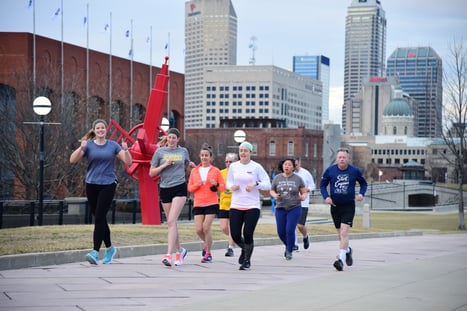 Running with others is one of the most effective strategies for creating a running habit and continuing it. The social benefits of running are among the biggest reasons why runners start and stick with running. Whether you’re running with one friend or a running group, here are some ways you can benefit from group running.
Running with others is one of the most effective strategies for creating a running habit and continuing it. The social benefits of running are among the biggest reasons why runners start and stick with running. Whether you’re running with one friend or a running group, here are some ways you can benefit from group running. Let’s be real. We aren’t always motivated to work out, and sometimes it’s hard to find that motivation. It’s even harder to find motivation when you don’t even enjoy exercise. It’s important to learn why getting active is so important, and it all starts with changing your mindset about it.
Let’s be real. We aren’t always motivated to work out, and sometimes it’s hard to find that motivation. It’s even harder to find motivation when you don’t even enjoy exercise. It’s important to learn why getting active is so important, and it all starts with changing your mindset about it. 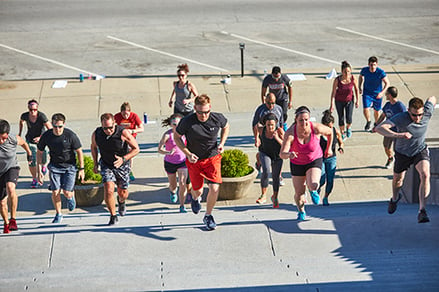 Group fitness classes are fitting for many people because the classes provide participants with predetermined workouts led by highly motivated instructors in a group setting. The niche of group fitness is constantly evolving. Classes in the category of group fitness look a lot different than they did 10 or 20 years ago. Not only do the classes look different, but they are more diverse than ever. Many participants use group fitness as supplementation for a typical workout at the gym because all you have to do is show up. Ease of participation coupled with the accountability of other members makes group fitness classes a unique environment.
Group fitness classes are fitting for many people because the classes provide participants with predetermined workouts led by highly motivated instructors in a group setting. The niche of group fitness is constantly evolving. Classes in the category of group fitness look a lot different than they did 10 or 20 years ago. Not only do the classes look different, but they are more diverse than ever. Many participants use group fitness as supplementation for a typical workout at the gym because all you have to do is show up. Ease of participation coupled with the accountability of other members makes group fitness classes a unique environment.

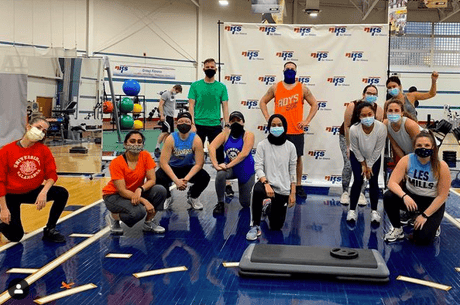 Group fitness
Group fitness I don’t know about you, but often during the holidays it just seems easy to blow off your daily workout. You have done well up to this point, staying committed and getting yourself into the gym or out for a run. But with the dark evenings, busy work schedule, and possibly some travel, it tends to be the first thing to take off the list. It’s important for your body to take a break, but if you need some tips on how to keep yourself going, keep reading!
I don’t know about you, but often during the holidays it just seems easy to blow off your daily workout. You have done well up to this point, staying committed and getting yourself into the gym or out for a run. But with the dark evenings, busy work schedule, and possibly some travel, it tends to be the first thing to take off the list. It’s important for your body to take a break, but if you need some tips on how to keep yourself going, keep reading! If your looking for a new challenge in the new year consider registering for the
If your looking for a new challenge in the new year consider registering for the 
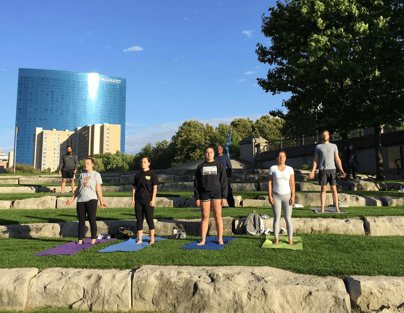 Do you want to be part of a community and hold yourself accountable while working out? Group fitness classes just might have what you are looking for!
Do you want to be part of a community and hold yourself accountable while working out? Group fitness classes just might have what you are looking for! 
 There’s always an assumption that fitness professionals work out 2 hours a day, 7 days a week. They eat healthy all day long and never have any junk food. Basically people think that we are perfect and never make mistakes. I have been in the health and fitness industry for more than 10 years now and I can honestly say that couldn’t be further from the truth.
There’s always an assumption that fitness professionals work out 2 hours a day, 7 days a week. They eat healthy all day long and never have any junk food. Basically people think that we are perfect and never make mistakes. I have been in the health and fitness industry for more than 10 years now and I can honestly say that couldn’t be further from the truth. You’ve told yourself that it would just be one “cheat meal,” but the next thing you know that one meal turns into everyday meals and you feel like you have fallen so far off the wagon that there’s no getting back on.
You’ve told yourself that it would just be one “cheat meal,” but the next thing you know that one meal turns into everyday meals and you feel like you have fallen so far off the wagon that there’s no getting back on.  As fitness professionals, we promote good habits to our clients and encourage people to make positive changes in their lives. Sometimes we help others find the spark to exercise or offer the accountability to make those hard-earned results stick. Overall, “helping individuals achieve success in goals and happiness in life” sums up what it means to be a trainer.
As fitness professionals, we promote good habits to our clients and encourage people to make positive changes in their lives. Sometimes we help others find the spark to exercise or offer the accountability to make those hard-earned results stick. Overall, “helping individuals achieve success in goals and happiness in life” sums up what it means to be a trainer.